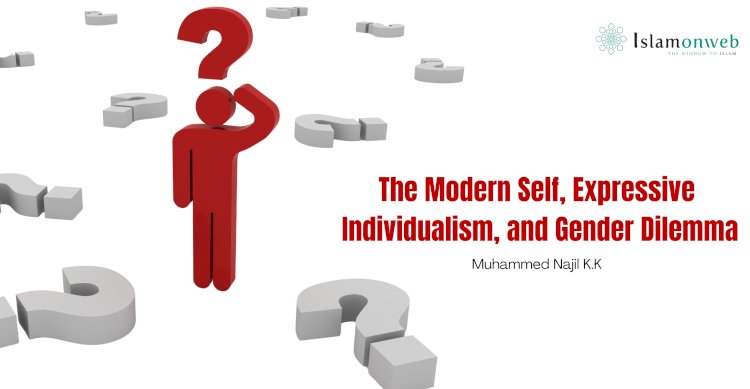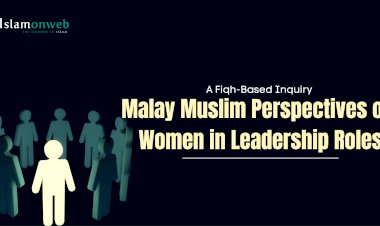The Modern Self, Expressive Individualism, and Gender Dilemmas: A Philosophical Inquiry
One of the defining features of postmodernity is the separation of gender from sex. The sexual revolution detached and eventually liberated European culture from the once interconnected concepts of sexuality, marriage, and reproduction. This division underlies the rise of gender politics and the formation of sexual minority communities. Criticism of transgenderism is now labelled transphobia, while criticism of homosexuality is seen as homophobia, reflecting the modern mode of identity construction that has shaped these shifts. At its core, this division reflects the philosophical rupture that shaped the modern self and its fragile identity claims.
Since both gender politics and its emergence rest on the philosophical foundation of the modern self, it becomes necessary to define what is meant by the concept of the modern self. At a basic level, we all possess a consciousness of self—this awareness links identity to individuality. However, the notion of “self” here refers to deeper questions: What is the meaning of life? What constitutes a good life? How does one understand and express one’s identity? Alongside the sexual revolution, profound changes occurred in how these questions were approached, leading to a reconfiguration of the self, now increasingly defined and validated through liberal sexuality and gender fluidity. A physical mindset, extending beyond individualism, emerged in the West through the ascendancy of the modern self.
Today, the philosophical framework of modern identity allows for shifts such as identifying as a man today and a woman tomorrow, or being heterosexual today and gay tomorrow. This flexibility raises important questions about the underlying assumptions behind such identity formations. Moreover, the rapid acceptance and normalisation of these identities within a short historical period demands critical reflection. A historical inquiry into this process forms the basis for understanding both the modern self and the gender politics it sustains.
The Evolution of Gender and the Self: A Philosophical Reflection
The sexual revolution, influenced by the philosophical ideas of thinkers such as Sigmund Freud, Herbert Marcuse, and Simone de Beauvoir—figures active in the West between 1960 and 1980—reveals this process of ‘normalization’. However, just as the French Revolution was not merely the event of 1789, nor simply a historical rupture after centuries of oppression and human rights violations, the intellectual foundations of the sexual revolution of the 20th century trace back to the Renaissance in the 14th century. That historical shift laid the groundwork for both the revolution and the rise of the modern self.
To define the historical context of the sexual revolution, it is essential to revisit the notion of identity. How did this psychological identity, one that is inherently sexualized, come into being? In seeking an answer, the philosophical theories of Charles Taylor and the sociological insights of Philip Rieff offer valuable perspectives.
A central aspect of Charles Taylor’s work is the contrast between mimesis and poiesis. These concepts reflect two different orientations toward the world. The mimetic view holds that the world possesses an inherent order and meaning that humans are meant to discover and live by. In contrast, the poietic view sees the world as raw material, with individuals projecting their own meanings and purposes onto it. Historically, humans cultivated land in accordance with environmental and soil conditions, with limited influence over climate or terrain. Over time, however, increasing human control in industrial and economic spheres has shifted this dynamic. Modern humans now cultivate land without regard to seasons, using irrigation systems and other technologies to manipulate nature.
The transition from mimesis to poiesis is similarly reflected in the discourse on gender. In earlier periods, humanity accepted the male–female duality as rooted in natural law. However, with scientific progress, even the authority of natural law has come under question. In effect, the poietic outlook—shaped by scientific advancement—enables individuals to question their gender and adopt alternative identities.
Philip Rieff’s concept of the “psychological man” identifies key factors behind the emergence of the modern self. Rieff categorises human types across history into four: the political man, the religious man, the economic man, and finally, the psychological man. The first three are shaped by external structures—politics, religion, and economy. The psychological man, however, is detached from these externalities and grounded in internal experience. Identity, for him, is determined not by political ideals, religious doctrine, or economic status, but by his own consciousness and emotions.
In the first three types, social order was tied to external reference points, be it political authority, religious belief, or economic power. By contrast, the psychological man is oriented entirely inward, and individual preference becomes the primary foundation. This internal turn lies at the heart of the philosophical framework that allows gender today, in much of the West, to be defined solely by one’s subjective consciousness.
This perspective aligns with Charles Taylor’s concept of expressive individualism, which marks the rise of the poiesis mode of thought over mimesis. It proposes that identity should not be shaped by external realities, but rather discovered through personal awareness and inner feelings. The term expressive individualism itself implies the articulation of individuality in a deeply personal and subjective manner.
In essence, humanity’s shift from an objective worldview to a subjective one forms the philosophical foundation for both the sexual revolution and the triumph of the modern self. This same trajectory underlies the parallel emergence of Rieff’s psychological man and Taylor’s poiesis-oriented worldview.
Transgenderism in the West: Philosophical and Social Dimensions
The contemporary crisis surrounding gender is deeply rooted in the philosophical foundations discussed above. On this basis, we can now examine the current discourse on gender and the dimensions of gender politics in the Western world.
Simone de Beauvoir, in her seminal work The Second Sex, famously stated, “One is not born, but rather becomes, a woman.” This assertion laid the groundwork for a worldview marked by gender dysphoria and internal conflict, wherein sex and gender were conceptually separated. Until the sexual revolution of the 1960s, nudity in films and other media was heavily censored in the West, making the later normalisation of liberal sexuality all the more striking. The trend of openly displaying nudity—framed as personal freedom and free thought—illustrates the moral descent witnessed in much of the Western world.
One of the most influential texts contributing to gender politics and the LGBTQ+ movement was After the Ball: How America Will Conquer Its Fear and Hatred of Gays in the 90s by Marshall Kirk and Hunter Madsen. The authors outlined a series of strategies to mainstream LGBTQ+ identities and secure their acceptance in society. A central argument in the book was that individuals identifying as homosexual or transgender were unjustly marginalised. As a result, those advocating psychological rather than physiological treatment for such individuals were quickly branded as homophobic or transphobic.
One of the primary strategies proposed in After the Ball was to portray LGBTQ+ individuals as victims of public hatred, thereby eliciting social sympathy. Kirk and Madsen stressed the importance of integrating sexual minorities into mainstream society through public discourse, media representation, and activist narratives. LGBTQ+ activists were increasingly framed as champions of civil rights, positioning them as heroes within the broader struggle for equality.
The contemporary gender discourse also raises ethical concerns surrounding medical interventions such as Sex Reassignment Surgery (SRS). The normalisation of gender transition as a treatment for psychological distress has drawn criticism, with some arguing that such procedures are more reflective of capitalist interest than genuine care for individual well-being. The suppression of psychological treatment options, exemplified by the closure of Kenneth J. Zucker’s clinic in 2015, highlights the influence of activist movements in shaping the dominant narrative. Moreover, the marginalisation of psychological approaches serves the economic interests of industries tied to sex toys, cosmetics, and medical technologies related to gender transition, exposing the commercial undercurrents behind gender politics.
If transgender identities are validated solely on the basis of personal identification rather than biological reality, it opens the door to complex philosophical and ethical questions. The recognition of so-called trans-species individuals—those who identify as animals—further complicates the discourse. Just as a biological male identifying as a woman is recognised as transgender, those claiming to be animals challenge the conceptual boundaries of identity politics. Psychological conditions such as zoanthropy, lycanthropy, and boanthropy raise difficult questions: should medical interventions be developed to alter the body in accordance with such self-perceptions physically?
In conclusion, the transformation of identity into a purely subjective construct invites deeper reflection on the trajectory of modern society. Rather than reducing the issue to ideological confrontation, it is necessary to examine the long-term effects of these movements on individual well-being and societal cohesion.
About the author
Muhammed Najil K.K. is a research scholar at Darul Uloom Islamic Da‘wah College, Thootha, affiliated with Darul Huda Islamic University. His academic interests are deeply rooted in Islamic studies and philosophy.
More Related Articles
Exploring the Ideal Gender Paradigm in Islam
Islamic Stance on Same-Sex Relations: A Refutation of Scott Kugle's Perspectives
Faith Under Fire: Navigating LGBTQ Discourses with Islamic Values
References
- Trueman, Carl. The Rise and Triumph of the Modern Self: Cultural Amnesia, Expressive Individualism, and the Road to Sexual Revolution. Crossway, 2020.
- Taylor, Charles. A Secular Age. Cambridge, MA: Belknap Press of Harvard University Press, 2007.
- Rieff, Philip. The Triumph of the Therapeutic: Uses of Faith after Freud. Chicago: University of Chicago Press, 1966.
- After The Ball: How America Will Conquer Its Fear and Hatred of Gays in the 90s by Marshall Kirk and Hunter Madsen.
Disclaimer
The views expressed in this article are the author’s own and do not necessarily mirror Islamonweb’s editorial stance.
























Leave A Comment